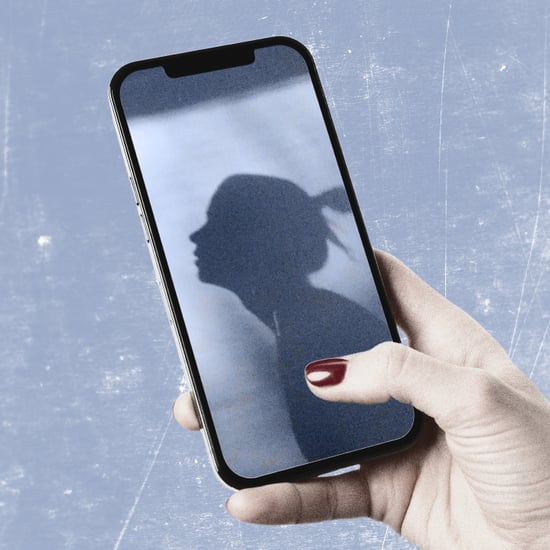Why You May Be Grieving During COVID-19
It's OK to Grieve During COVID-19, Even If You Haven't Lost a Loved One

COVID-19 has claimed the lives of more than 100,000 Americans and caused millions more to file for unemployment. For months, we've been inundated with reports of unimaginable suffering as people grieve the deaths of their loved ones and struggle to put food on the table. For those of us who don't fall into those categories, it's easy to feel guilty when we experience sadness, loneliness, and disappointment as we miss out on milestones like graduations and weddings, or watch as the savings or careers we've built for ourselves fall away. But whether or not we've known someone who has died from COVID-19, feelings of loss and grief are valid and shouldn't be dismissed.
Harper Spero, a New York-based business coach and host of the podcast Made Visible, had planned to spend winter in Tel Aviv, Israel, and return to the states in time for the birth of her best friend's baby. As stay-at-home orders went into effect, Spero returned to New York early and began social distancing at her parents' home in Long Island. "It felt like the smart thing was to be with my family and be close to my doctors, especially given my health," she told POPSUGAR. Spero has a rare immune deficiency and, as a result, she's one of the many young people at an increased risk of developing COVID-19.
Spero emphasised that she's grateful for her health, her family, and the continued success of her business. But like millions of other Americans, she's grieving. "My best friend had her baby and now I don't know when I'll ever get to meet her in person and hold her," Spero said. "It was really heartbreaking meeting her for the first time over FaceTime. There's nothing like holding a newborn baby." And, although she has a wonderful relationship with her parents, Spero is impacted by the sudden loss of her freedom. She gave up her apartment in New York City, because paying a hefty rent bill each month doesn't make sense when you have no idea when you'll be able to return. It was the right decision given the circumstances, but it's been difficult to lose that sense of independence.
"I'm living with my parents instead of in my own apartment and, although we have a phenomenal relationship and I'm grateful to have them, there's a loss of freedom," Spero said. "I don't have my driver's licence and relying on them at this age is a strange thing." She added that, because she's immunocompromised, she's also not able to do volunteer work even though she desperately wants to. "I'm making donations, but handing over money doesn't feel the same," she said.
Kahina A. Louis, PsyD, a licenced psychologist and CEO and founder of Strengths and Solutions, explained that grief is the pain we feel after a loss — and it's not limited to deaths alone. "The feeling of grief can extend to anything that we feel is a significant loss in our lives. During this time of the pandemic, a lot of us are experiencing this, whether that be loss of time spent with our loved ones or cancellations of significant life events that we were highly anticipating," Dr. Louis told POPSUGAR. "We're only human, and emotions are a natural part of us, so of course it is valid to feel sadness, even if 'things could be worse.'"
She added that when we don't feel in control of our lives, it triggers an emotional response. So, even suddenly losing the savings you built up so you can rent or buy a place of your own, or having your five-year plan pushed back, feels like a loss. "Often in life, we're used to coming up with a plan of what we want, finding a way to make it happen, and then reaping the benefits of it," Dr. Louis said. COVID-19 has essentially stripped us of that sense of freedom and the ability to work toward our goals. "Thus, in comes various symptoms of grief as we experience this sense of no longer feeling in control of our lives," she said.
"As the social and economic toll of COVID-19 continues, the loss during this time is extending into expectations we may have had about life for the next few years."
Danielle Ramo, PhD, a clinical psychologist and senior director of research at Hopelab, agreed that we can feel grief in response to any kind of significant loss — and we're all experiencing loss in various ways right now. "Not being able to attend graduations, missing the births of children in our lives, or not being able to connect in person with family and friends at significant times like birthdays and holidays are all forms of loss," Dr. Ramo told POPSUGAR. "As the social and economic toll of COVID-19 continues, the loss during this time is extending into expectations we may have had about life for the next few years. In many cases, plans have been upended, including career plans, school plans, and plans for housing or travel."
While we all experience grief differently, "[it] may come with symptoms such as shock, sadness, guilt, resentfulness, anxiety, helplessness, and even physical symptoms like nausea, fatigue, or having trouble sleeping," Dr. Ramo explained. And while you may be keenly aware that others are suffering more severe losses, suppressing those feelings of grief isn't the answer.
For starters, Dr. Louis explained that suppressing feelings will only make them go away temporarily. "Over time, they continue to weigh on us and tend to emerge, usually, in unproductive ways like outbursts, constant irritability, or increased depressive symptoms," she said. "This is because the feelings were never actually dealt with, the same way a leak, for example, that goes unaddressed will likely only get worse." Dr. Louis emphasised that acknowledging your feelings is crucial in order to work through them and heal from your pain — and it's important to remember that these emotions are valid. "Beating yourself up for feeling sad when 'it could be much worse' only worsens the experience by now introducing feelings of guilt or shame," she said.
Spero said therapy has helped her work through what she's feeling. "What I've come to terms with is there's a way to feel grateful for having a roof over my head, family, food, technology, and safe access to the outdoors, and at the same time recognise that [I'm experiencing] grief," she said. Meditation has been a powerful coping mechanism for Spero, and she's also using this time to take an online writing class. Sometimes she writes about the pandemic, and other times she focuses on entirely different topics that serve as a distraction. Spero also said that taking walks and getting fresh air has helped her mental health.
These are the types of coping mechanisms that experts recommend. "Strategies to help us cope can include taking care of the things we can accomplish, like a small home project or cooking, and adopting practices like meditation or expressing gratitude that we can rely upon as a soothing, regular part of our days," Dr. Ramo told POPSUGAR. Both experts said that maintaining a connection with friends and family through video calls and social media can help us feel less alone and provide an important reminder that we're in this together.
With so many elements of our lives on hold and no clear timeline for when things will return to normal, it's natural to experience feelings of grief, and it certainly doesn't make you selfish or ungrateful. Honouring your emotions and working through them is an important act of self-care — and being kind to yourself has perhaps never been more important.








